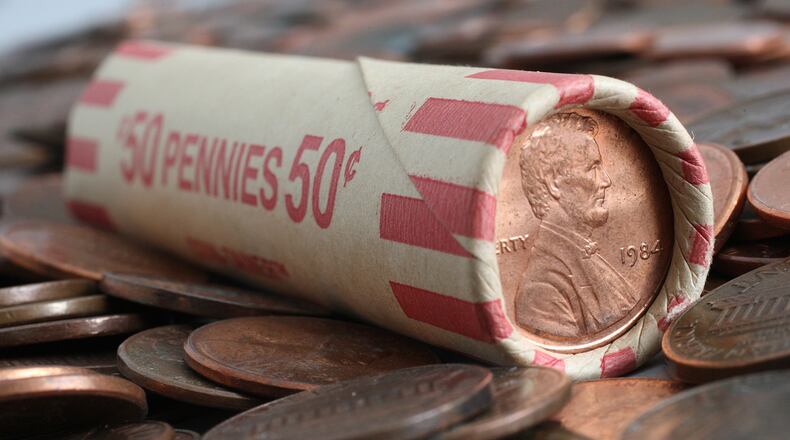The long-term shutdown of American business due to the coronavirus has created an unexpected national shortage of pocket change.
The problem emerged primarily as a result of the U.S. Mint producing fewer coins than usual this spring because pandemic safety measures forced agency employees off the job.
Now banks around the country, especially those in rural areas, have started to ration nickels, dimes, quarters and pennies, according to a report by NPR.
Retailers including convenience stores are also feeling the pinch.
On Monday, a QuikTrip in Suwanee had a sign posted outside the establishment apologizing to customers and asking them to pay with exact change or by debit or credit “due to shortage of coins from the Federal Reserve.”
“If your payment requires change, we will return it to you in the form of a QuikTrip gift card,” the sign reads.
A quick check on social media showed similar signs posted elsewhere around the country, at a McDonald’s drive-thru, a Lowe’s and a MidFirst Bank to name a few. Harps Food Stores posted an announcement about the shortage to its official Twitter account.
The coin shortage has been on the government’s radar for nearly two weeks.
"The COVID‐19 pandemic has significantly disrupted the supply chain and normal circulation patterns for U.S. coin," a June 11 memo announced on the Federal Reserve website.
Gay Dempsey, who manages the Bank of Lincoln County in Tennessee, experienced the shortage firsthand when she recently was forced to ration coins to her customers.
“You think about all your grocery stores and convenience stores and a lot of people that still operate with cash. They have to have that just to make change,” she told NPR.
Meanwhile, Karen Mracek, a spokeswoman for the Federal Reserve in Atlanta, said she didn’t believe the coin shortage to be a major problem in the South, and that things should be on the way back to normal.
Last week, Federal Reserve Chairman Jerome Powell assured the House Financial Services Committee that the central bank was closely monitoring the situation.
“The flow of coins through the economy ... kind of stopped,” Powell told the panel.
The problem was also compounded by fewer customers coming into bank lobbies the last few months to keep coins recirculating.
As businesses shuttered and people shopped less, coins have sat idle for months in cash registers or have been tossed aside at home.
Coin-sorting kiosks popular in retail stores also saw reduced traffic during the shutdown, NPR reported, but are now starting to see an increase.
The Mint is boosting supply again but still has to distribute the coins across the country.
During the committee hearing last week, Republican Rep. John Rose of Tennessee expressed worry about businesses potentially having to round purchase totals up or down “in a time when pennies are the difference between profitability and loss.”
But Powell said he was hopeful the widespread reopening of business would help to quickly correct the problem.
“We’re working with the Mint to increase supply, and we’re working with the reserve banks to get that supply where it needs to be,” Powell said. “So we think it’s a temporary situation.”
About the Author
The Latest
Featured


